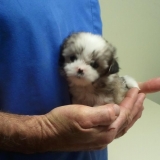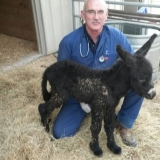There are genetic markers for disc disease in dogs
Every spring, some of the finest racing animals in central Texas gather to determine who is the fastest. If you are thinking race horses you would be wrong. We are talking racing wiener dogs. The races bring together dachshunds from all over the area.
Dachshunds are wonderful little dogs, full of personality and energy. There is something very appealing about all short legged dogs, corgis and bassets to name some other very popular breeds. These breeds have something else in common besides short legs and cuteness. A predisposition to neck and back problems.
Intervertebral disc disease (IVDD) is a type of disc degeneration where the discs dry out, harden and become calcified at an early age often between three and six years old. The discs are then less flexible with movement and more prone to bulging and rupture. The calcified inner disc can put pressure on the spinal nerves causing symptoms from pain to paralysis.
Plain x-rays are not diagnostic for the condition although they may rule out other issues. Injecting dye into the spinal canal that can then be seen on x-ray or an MRI gives a much better diagnostic picture.
IVDD can occur in non-short legged breeds, most commonly German shepherds, Labrador retrievers and Dobermans. In these breeds, disc rupture occurs a little later in life around eights years of age.
It turns out there is a genetic marker for IVDD found on chromosomes 12 and 19. Genetic testing for the problem is now available. Knowing that a dog has the retrogene insertion on these chromosomes in advance of any symptoms is hugely helpful in managing the condition.
Obesity is a major risk factor for IVDD. If your dog has the genetic marker for the problem, keeping the weight at an appropriate amount is essential.
The good news is there are treatment options for IVDD. Sometimes it can be as straight forward as pain management. There are a variety of effective medications for pain management. Additionally, therapeutic cold laser treatments can provide significant relief from chronic pain. There are a variety of nutritional supplements that can help as well. We are happy to go over all the options with you.
Other cases require surgery. These types of surgery require specialized equipment and these cases are referred to specialty surgeons.
Give us a call about testing for IVDD and which breeds are known to have the genetic marker for the disease. If you are a fan of adorable, short legged, long backed dogs, having this information in advance may allow you to prevent problems in the future.














